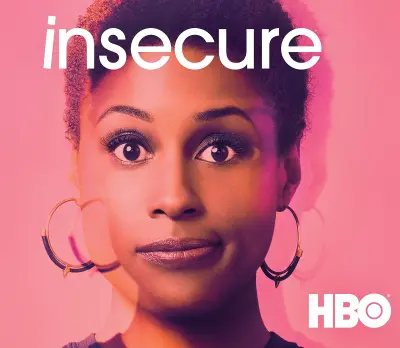Insecure has always been a sitcom about sitcoms, television about television
-

"There is Insecure the art work, and Insecure the phenomenon," says Doreen St. Felix. "The show benefitted from the chatter in the late twenty-tens about television undergoing a 'Black Renaissance.' It was true, for a time, that (Issa) Rae was the only Black woman with a premium-cable series. But that statistical fact obscured what made Insecure compelling: its sense of history and community and genre. The series has always been a sitcom about sitcoms, television about television. It was not radical; it liked tradition. There’s no Insecure without Girlfriends. Rae employed a retinue of primarily Black writers and directors who gave the show a house style. And every season, except for this last one, contained a satirical show within a show. References were made to Living Single, Martin, Scandal. These gags clarified the ambition of this suave experiment: to gussy up the familiar with the aesthetics of the new. At the end of the fourth season, there was a 'twist' that many viewers found intolerable. It was soapy, critics argued, to tease another reunion of Issa and Lawrence, and then to introduce an unplanned pregnancy. Fair, but Insecure never promised realism. It was a risk, and an admirable one, to refurbish the tropes of romantic comedy. Still, Insecure could surprise. Some of the best episodes were references to Richard Linklater’s Before trilogy: long, meandering dates, with L.A. glittering behind the lovers. Insecure” filled the hunger we had for a low-key Black comedy of errors. It could have remained comfort food, but as the seasons went along the storytelling matured. The characters changed; aspirations to Black excellence were refreshingly disavowed. The shenanigans alternately vexed or tantalized you. Were you Team Nathan (Kendrick Sampson) or Team Lawrence? Was Molly ridiculous for shunning a lover because he had once hooked up with a man? (She was.) You became dedicated to Insecure as you might become attached to a sport. The theme of this final season is growth. The episodes I’ve seen are funny, melancholic, and not too ambitious plot-wise. The gentle momentum suggests that the series will give us an old-school, satisfying closure."
ALSO:
- Insecure cinematographer and director Ava Berkofsky on how the show changed how we view Black characters: "I’m grateful for the opportunity I’ve had to help create the visual language and style for HBO’s Insecure," says Berkofsky. "From the beginning, I felt strongly that this show deserved a look and feel beyond a traditional comedy. The show is so specific, and its complicated relationships and grounded characters made me a fan in season one, before I even thought about joining the team. In my interview to take over the cinematography beginning in season two, I figured I’d be very frank about what I would want to do, and then if I didn’t get the job, at least it would be because my ideas weren’t the direction they wanted to go. But then I actually got the job. Conceptualizing what I would bring to the show as a cinematographer, the important elements to me were creating a look where at its core DNA, melanin is seen and celebrated through lighting and style, supporting the intimate exploration in the show’s relationships. Even little things like keeping the actors’ eyelines close to the lens were vital so you can feel immersed in a performance. Incorporating the personality of the show into the visual language should be as specific as the show itself. There should be awkwardness, imbalance and intimacy, and the character that is South Los Angeles should shine. For me, framing is everything. When the balance of a frame is right for the moment, I just feel a sense of immense joy, both as a viewer and as a creator. On the show, I wanted the framing to add to the viewer’s experience without them realizing it and to share some of that immersive joy. The story themes are around people doing the hard work of growing up, relationships breaking apart and sometimes coming back together. Making frames that bring you into these stories comes naturally, and it has become a part of how I think about the show."
- Yvonne Orji on how Insecure and real life has intersected: "I just had a conversation with my parents about estate planning"
- Lisa Joyce discusses playing Frieda, Issa' well-intentioned but sometimes oblivious co-worker
TOPICS: Insecure, HBO, Ava Berkofsky, Issa Rae, Lisa Joyce, Yvonne Orji, Cinematography
More Insecure on Primetimer:- “Amanda Seales ate!” - Internet reacts as Insecure star debates 20 black conservatives in viral video
- TV Doesn't Need Twitter or Reddit
- The 7 Shows That Took HBO From Broadcast Copycat to Champion of Diverse Storytelling
- Insecure, Dopesick and Reservation Dogs are among the winners of Television Academy Honors Award for inspiring social change
